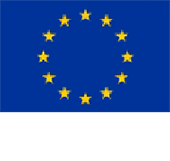Mekorot, Israel’s National Water Company is a public utility founded in 1937. One of the world’s most advanced water companies, a leader in water resources management, desalination, wastewater treatment and effluent reuse, rain enhancement, water quality, water security and water project engineering. Mekorot supplies 80% of the water in Israel (about 1.4 billion cubic meter / year). In addition, the company treats 30% of Israel's wastewater and supplies the treated wastewater for agriculture consumption.
Mekorot's revenue is about 1 billion USD in a year with 350 Million USD invested in development of the water infrastructure. The company is rated AAA with 2,450 employees. Through continual research, experiments and field innovations, Mekorot provides a steady flow of high quality water 24/7 for all the uses in all the country, with a rapidly growing population, despite the region’s limited freshwater resources and arid climate. Mekorot’s uniqueness as a water utility lies in its unparalleled experience, know-how, technologies and innovative processes for the management, operation and treatment of all types of water resources, whether surface water, underground water, brackish water, seawater or effluents. Mekorot is active in the global market through its subsidiary company - Mekorot Development and Enterprise (MDE).
Mekorot supplies water to approximately 5,000 intermediary water providers, including municipalities, regional associations, agricultural settlements and industrial consumers. The Department of Wastewater Treatment and Effluent Reuse in the Water Quality Division will be participating in the AquaNES Project.
Wastewater treatment and reuse (Water Quality Div.): The systems established by Mekorot have given Israel the world’s highest water reclamation rate. Mekorot was among the first, in Europe and the Middle East, to investigate and implement large-scale wastewater reuse systems like Soil Aquifer Treatment (SAT) after secondary treatment of wastewater.
The company’s four sewage treatment plants treat 30% of all Israel’s sewage, and its nine reclamation plants enable 60% of the effluent to be reused for agriculture, freeing drinking water for domestic and industrial use. Mekorot will be the operator and Maintenance responsible as well as provider of place and accessibility for the Demo Site Agrobics system in Karmiel WWTP.




